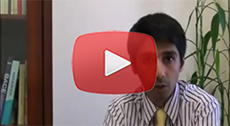Rehabilitation
Rehabilitation medicine focuses on the diagnosis, treatment and management of people with disabling medical conditions. Rehabilitation medicine physicians work with people with disabilities to reduce the impact of their disease or disability on their daily life, to prevent avoidable complications and to minimise the effects of changing disability.
Rehabilitation medicine serves three main groups of people: those with neurological disabilities, those with amputation and other musculoskeletal impairments, and those with chronic complex conditions such as cardiorespiratory disorders. Some of the conditions covered are: spinal and head injuries, stroke, multiple sclerosis, motor neurone disease and Parkinson’s disease. In childhood these may also include cerebral palsy, spina bifida, congenital limb disorders and muscular dystrophies.
Most aspects of rehabilitation medicine require a multidisciplinary team. There is also much overlap with colleagues in other specialties in neurological, neurosurgical, orthopaedic, palliative care, psychiatric, psychological, rheumatological, vascular and pain medicine, as well as paediatric and geriatric colleagues. Social services and other non-medical agencies are often involved in the rehabilitation process to ensure that suitable care continues outside the hospital.
Rehabilitation medicine and rehabilitation in general is in a phase of expansion in Queensland and there are increasing opportunities for Vocational Trainees and Rehabilitation Physicians.
Advantages of Starting a Career at TPCH
- Individualise career advice
- High standard of training with many opportunities for learning and teaching
- No night shift
- Functional Independent Measures (FIM) training available four times per year
- Accredited FIM trainer on-site
A Registrar’s view
Training Overview
Entry requirements to Training Program
- Preferable to have General Registration
- 24 months of Resident Medical Officer experience in Australia (this can include Internship)
- Overseas trained doctors can apply via the Specialist Assessment pathway (refer college website)
In the first instance, contact AFRM regarding training involved and entry requirements. The following is a brief outline of how to apply for an advanced training position:
- Apply to QH RMO campaign and preference Rehabilitation Medicine
- Nominated candidates undergo a central selection process by the Qld branch of the AFRM. This involves: a) written application, b) interview and c) matching selected candidates with their selected hospitals
- Apply to the training program with AFRM. This is a paper-based process. It is possible to apply for a training position and a QH position separately but it is usually done concurrently.
Overview of Training Program
The AFRM training programs are based on the apprenticeship model and consist of either three years clinical training in Paediatric Rehabilitation Medicine or four years clincial training in Rehabilitation Medicine (general), as well as an integrated component of formal education, which includes the completion of a series of training modules.
Brief outline of Rehabilitation Medicine (general) program
Within years 1 & 2: Module 1 – written – MCQs (30% anatomy); Module 2 – clinical (short cases)
Years 3 & 4: Module 3 – clinical research; Module 4 – clinical neuropsychology; Module 6 – behavioural sciences
Once these modules completed, one can sit the Fellowship exam – written & clinical (2 formal long cases).
Module 5 – health service administration and evaluation and 12 satisfactory in-training long cases must be completed before the end of training.
What rotations are recommended prior to applying for training?
Any rotations in subacute medicine
How to improve your chances of selection
Good clinical experience in acute medicine – for example, ED, ICU, Cardiothoracic Medicine
Research – always useful and may be retrospectively accredited for module 3
Course – Functional Independent Measures (FIM) : a one (1) day workshop on rehabilitation outcome measures
Frequently Asked Questions
Contact us
Medical Education Unit
Email: TPCH-Medical-Education@health.qld.gov.au
Phone: (07) 3139 4221
Editor: Dr Ling Lan, Training Coordinator, TPCH

